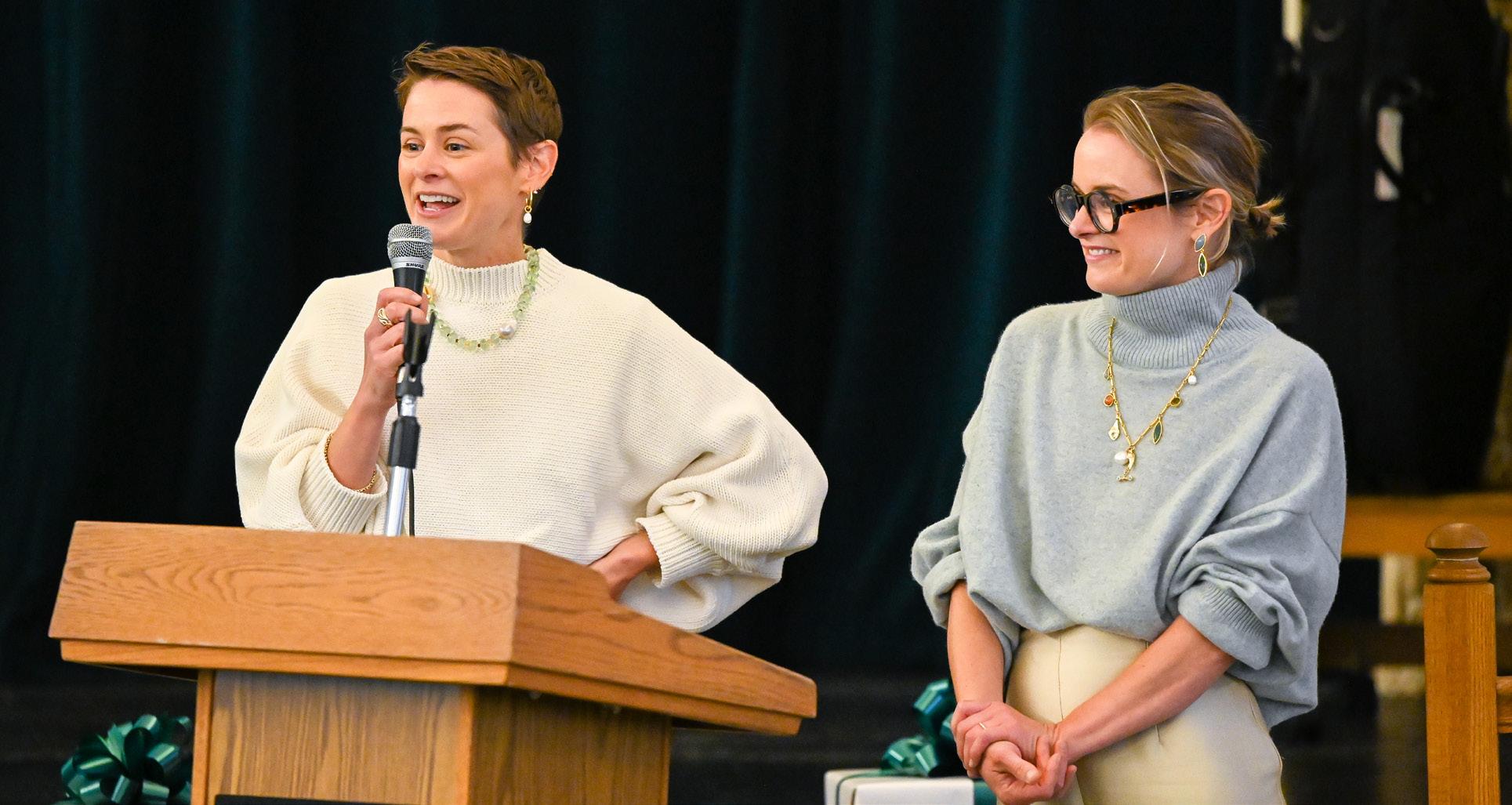
3 minute read
CHUCK DURANTE’S REMARKS
Fifty seven years ago, three Wilmington industrialists decided, after a half-hour interview in Malcolm Coates’ office, that I was worth their investment for education at Tower Hill.
I was so excited. Peerless academics. Athletics for everybody. An honor code. Girls on the honor roll. The state’s only all-weather track.
I never took this provisional vote of confidence for granted. Over four years, with the guidance of mentors like Ed Hughes, Bob Behr, Ernie Savage, Midge Kelly, Herb Oviatt and our headmaster.
Excitement, grind, encouragement, challenges, reprovals. Experiences that all of us in this room share. Joy followed by foolishness. Two or three steps forward, one step back. Discovering potential. Coming of age.
Above all, teachers who made me think that my growth was the most important priority of their day. By 11th grade, the skeletal version of whom you see this morning had developed. A person different from he who would have emerged anywhere else.
I never anticipated spending Tuesday nights on 4th Street, tutoring a third grader whom I might someday select as the Inquirer’s Athlete of the Week.
I never imagined singing in a chorus at the Academy of Music behind the Philadelphia Orchestra, conducted by William Smith.
I never foresaw having a stage role as the town drunk in Thornton Wilder’s Our Town, long before I would have any first-hand experience.
Or playing a supporting role on the State’s best track team, editorially endorsing, in the Dial, a split ticket for mayor, governor and President in the turmoil of 1968. Or jousting with John Ciardi, James Farmer and other distinguished speakers.
Or seeing my brother Larry, also welcomed here, grow in vision and potential, and showing me how to be appreciated by classmates. We ended in colleges that we would never have predicted four years earlier, but for which we were well-suited and well-prepared.
A place that can be perceived as part of the establishment taught him and me—and my daughters Julia and Maddy—to raise questions, how to disagree, with foundation, facts and focus.
Like the physical plant, an institution either erodes or grows. The principles of progressive education that motivated the founders and Burton Fowler a century ago must constantly adapt.
Like the U.S. Constitution, they express standards and aspirations. They provide critical structure over the generations and deter fads. Yet, the standards can never be allowed to ossify into received wisdom.
A quarter of the 21st century has almost passed. And this annual gathering is a suitable time to appraise the school again, whether you have been away for five or 45 years.
Tower Hill is at its best when it recognizes that a school is more than books.
I’m glad to report that this school has recognized that the teenage years can be pretty horrible. Everyone— honor student, star athlete, class president, party boy—can be consumed by self-doubt. At one time or another, everyone feels like a dummy or a dork.
Celebrating academic excellence, we now realize, means recognizing effort and accomplishment in each part of the class, even those who would in an earlier day seen “4th quarter” on the report card.
Ethical standards, community service and above all mental health are part of this school’s mission. Learning that seeking the right answer involves civil communication with those who have found a different answer.
A larger school is good. More voices, more personalities. You can actually meet new people in the second semester.
We are exploiting the advantage of being at the end of the number 10 bus. This city has looked up to us for a century. Its youth belong here in as great of numbers as possible.
Those of you in the Class of 1972 launched my adult support for this school. After your graduation party at Doug Allen’s, I sent an unsolicited check to Mr. Coates, observing with pleasure the maturity to which you had grown in the three years since my graduation.
In his thank-you note, the headmaster shared his aspirations for greater racial and economic diversity in the student body. What this school is now pursuing carries out a decades-long vision.
This school. A boisterous, ever-changing cast of students, now 800 of them. Teachers who cultivate their intellectual awakenings. Teachers who help them believe in themselves. Teachers who punish unwarranted sentence fragments. An Honor Code that treats them like adults. An athletic program to which the gawky of limb can contribute. Friendships for life.
Above all, life is more than work. Almost every alum in this room has devoted significant portion of what we learned here to the public good. I like to think this school nurtured that gene.
And this award. It’s humbling, since there are so many with towering accomplishments or national renown, including several in my class. This is an honor for which many are qualified. I am overwhelmed that interview on a chilly April of 1965, has led here.










